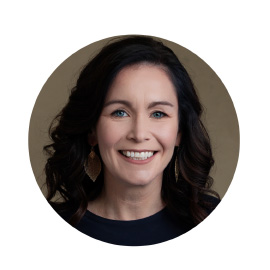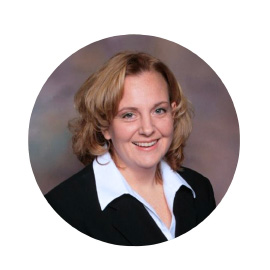
New Administrators Expand and Enhance Teaching, Learning, and Research
By Jamie DePolo

By Jamie DePolo
Four administrators recently joined the MSU College of Veterinary Medicine. While all have different goals, they share a vision of building upon the College’s current strengths, taking advantage of new opportunities, and using their experience and expertise to enhance teaching, learning, and research.

Dr. Kevin Leonard was named assistant director of Diversity, Equity, and Inclusion in March 2021. Before coming to the College, he served as the senior program coordinator for the Michigan State University Multicultural Business Programs, which is housed in the Eli Broad College of Business. There, he provided academic advising, coordinated tutoring programs, and promoted internship opportunities.
"One of my goals is to continue the work being done to infuse diversity and inclusion into the College’s curriculum, hiring, and promotion processes; recruitment of students and faculty; and training,” Leonard says. “Dr. Hilda Abreu has built a phenomenal foundation to make the College a leader in diversity, equality, and inclusion among vet colleges in the country. I want to build on that and take the College to the next level.”
Some current Diversity, Equity, and Inclusion initiatives from the Office of Admissions, Student Life, and Inclusivity include:”
“This position with the College of Veterinary Medicine was what I wanted to transition to,” he says. “At the Broad College, I enjoyed my work very much, but what I was really doing was helping students overcome barriers that often were created by the policies put in place by the administration. In my new role, I’m working alongside faculty, staff, students, and the administration to change policies that create barriers, as well as assisting in drafting policy that takes into consideration its effect on marginalized or underserved populations. It’s much more proactive.”
A member of the College’s Diversity, Equity, and Inclusion Committee, Leonard will work with faculty, staff, and students to change policies, with the long-term goals of changing the College’s culture. This will change how the College looks to prospective students, faculty, staff members, and clients.
“We want to make the entire College more diverse,” he explains. “I want other colleges and universities to come to our leadership and ask, ‘How did you do that? How did you increase the diversity of your faculty, staff, and students? How did you get faculty and staff to become diversity, equity, and inclusion advocates and allies?’”

Dr. Kimberly Dodd’s first day as director of the Veterinary Diagnostic Laboratory was September 1, 2021. She most recently served as the director of the US Department of Agriculture Foreign Animal Disease Diagnostic Laboratory on Plum Island, which is the national and international reference laboratory for high-consequence animal diseases. Her areas of expertise include diagnostics, veterinary countermeasures, and emergency response to emerging infectious diseases.
“MSU has a world-class diagnostics lab renowned for multiple specialties,” Dodd says. “Now, following COVID, I think there’s a new appreciation for the importance of diagnostic laboratories, and that is driving a global revolution in the field. It’s a pivotal time to lead a lab like the MSU Veterinary Diagnostic Laboratory. I’m excited to build on the existing expertise to enhance the Laboratory’s national and international contributions.”
While there are similarities between her roles at Plum Island and MSU, Dodd says she’s looking forward to having a more tangible, hands-on approach with trainees on campus.
At MSU, one of her goals is to mentor students, show them what diagnostic labs do, and get them as excited as she is about coming into the lab each day. She also wants to reach out to veterinarians currently in practice who might be looking for a change of pace.
“I’m thrilled to be part of an academic community,” she says. “Another of my goals is to enhance relationships and collaborations within and beyond MSU. I want to bridge the divide—both the conceptual divide and the actual, physical divide on campus—between the College and the Laboratory. We need more young people coming in who are passionate about diagnostics. MSU’s Veterinary Diagnostic Laboratory is an amazing platform to support animal and human health, both in Michigan and on national and global levels.”

Dr. Rob Fowkes was named chairperson for the Department of Small Animal Clinical Sciences in August 2020. He comes to MSU from the Royal Veterinary College at the University of London, where he was associate dean for postgraduate learning and teaching.
Appointed in the middle of the COVID-19 pandemic, Fowkes faced numerous quarantine travel restrictions while he attempted to relocate to MSU. He was expected to work from the UK until at least February 2022 (from what he calls the “North London campus” of the College), but luckily, Fowkes already landed in East Lansing this November.
Fowkes is internationally known for his work in endocrinology, particularly the study of endocrinopathies across species, as well as endocrine-related cancers.
Fowkes says his appointment is a bit of a departure for the College, since it is one of the few times a non-DVM has held the position.
"But I feel qualified for the position,” he says. “I’ve worked in a vet school setting for 17 years, and I have a strong background in curriculum design and delivery.” At the Royal Veterinary College, I went through three versions of the veterinary curriculum and hosted visits from multiple regulatory boards. I am experienced at protocol and policy, and have a strong working knowledge of how to get the most out of a curriculum.”
“I spent a lot of time focusing on the veterinary student experience,” he adds. “One of my goals at MSU is to produce career-ready grads who aren’t overwhelmed.”
Fowkes says he is keenly aware of the stresses pulling on academic veterinarians and of the pressures the entire profession is facing.
“We’re asking faculty to be brilliant in multiple areas, and often we can’t remunerate them the same way private practice can,” he explains. “It’s a balancing act for faculty. Many of my colleagues say that teaching is a big part of the reason why they stay in academia. But they also have to do research, clinical work, and bring in partners and funding. There is so much pressure for faculty to do it all, and often the first thing to suffer is research.”
Fowkes says he would like to find a way to build enough flexibility into the College so faculty members have the time and energy to conduct research that is important to them.
“If we can provide the infrastructure that supports people doing research, perhaps a clinical trial center, that becomes an important difference between academia and private practice,” he says. “We need to make it easier for people to do what they’re passionate about.”
Diversity and inclusion also are hugely important to Fowkes, and he is excited to work with the College’s Office of Diversity, Equity, and Inclusion to make improvements at all levels, particularly faculty. “I want to collaborate to build a system to make the College an attractive place to work and learn, no matter a person’s background,” he says.

Dr. Kelley Meyers’ (DVM ‘99, MBA ‘13) first day as director of the College’s Veterinary Medical Center was October 1, 2021. Prior to assuming her new role, she held several senior leadership positions throughout her career, most recently as chief medical officer with Michigan Humane. She also was a medical director and field director for Banfield Pet Hospital, and worked in private practice, where she treated both large and small animals.
“The College has a new strategic plan with six goals and they all tie into our work at the Hospital,” Meyers says, “including creating a hospital environment that’s innovative, service-focused, and a reflection of the community we serve.”
Diversity and inclusion are especially important to Meyers. At Michigan Humane, she partnered with the Detroit International Academy for Young Women, the Michigan Science Center, and the STEMinista Project to help introduce students to animal-focused career choices.
“I have been lucky to have a diverse career,” she continues. “This background will help me represent the different facets of the veterinary industry to help our students better prepare for their careers, including an introduction to business acumen.”
Meyers takes over direction of the Hospital amid several atypical events: big construction projects, transitioning to new software programs, and the constant evaluation of COVID-19 safety measures.
“My first 90 days are about meeting the team, listening to the challenges they’re facing, and developing solutions together,” she says.
Meyers notes that university veterinary hospitals face some challenges that are different from private hospitals, including balancing efficiency and customer service with the education process. She plans to use her experience in building effective teams and optimizing work processes to help the Hospital and the College achieve their goals together.
“As an alumna, I’m also really happy to give back to the College that gave me so much,” she adds. “The College helped me get to where I am today, and I couldn’t be prouder to be part of MSU again.”
